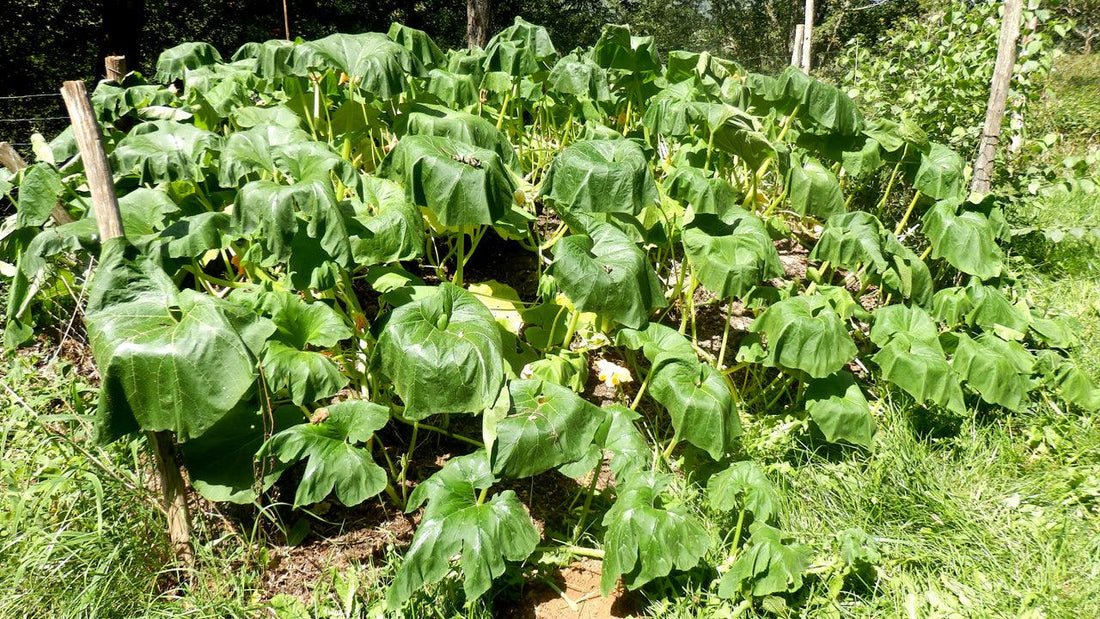Help Your Plants Thrive Through the Summer Heat
The dog days of summer have arrived! With rising temperatures and scorching sun, it’s no surprise that your garden vegetables might look a little worse for wear. While it’s tempting to reach for the watering can at the first sign of wilting leaves, understanding why plants wilt during the summer heat can save you water, time, and stress.
Why Do Plants Wilt?
Plants lose water through a process called transpiration, where water evaporates from the surfaces of their leaves. During hot weather, plants may wilt to conserve water, reducing their leaf surface area and, consequently, water loss. This is a survival mechanism to protect themselves from extreme heat and dehydration.
However, not all wilting is caused by dry soil. Plants can also wilt simply because they are hot, even if their soil is adequately moist. This is particularly common in large-leaved plants like squash, melons, and cucumbers, which have a greater surface area and are more susceptible to water loss.
Check Before You Water
Before turning on the irrigation or grabbing the hose, take a moment to check your soil’s moisture levels. Overwatering can lead to problems like root rot, nutrient leaching, and wasted water. Here are two simple ways to assess soil moisture:
- Moisture Meter: Use a moisture meter to get an accurate reading of how much water your soil contains.
- The Finger Test: Stick your finger a few inches into the soil. If it feels moist, your plants don’t need water. If it feels dry, it’s time to water.
Timing is Everything
When you determine that your plants need water, the timing of your watering sessions is crucial. The best time to water your plants is in the early morning. This allows the water to seep into the soil and reach the roots before the heat of the day causes rapid evaporation. If your soil is drying out a few inches below the surface by midday, increase the duration of your morning watering sessions.
Avoid watering in the late afternoon or evening, as this can lead to prolonged leaf wetness, creating a perfect environment for fungal diseases.
Mulching for Moisture Retention
Mulching is an excellent way to keep your soil cool and reduce evaporation during the summer heat. Organic mulches, such as straw, wood chips, or shredded leaves, provide a protective layer over the soil, helping it retain moisture and stay cooler. Mulch also suppresses weed growth, which can compete with your plants for water and nutrients.
Apply a layer of mulch around your plants, leaving a small gap around the base of the stems to prevent rot. This will help ensure your plants have consistent access to water while minimizing the need for frequent watering.
When Wilting Isn’t Just Heat-Related
While wilting during hot midday hours is often a normal response, persistent wilting can be a sign of underlying issues. Here are some potential problems to watch out for:
- Bacterial Wilt: This disease is caused by bacteria that block water flow within the plant. It’s most common in cucumbers, melons, and other members of the cucurbit family. Unfortunately, plants infected with bacterial wilt usually cannot recover and should be removed to prevent the spread of the disease.
- Pest Damage: Insects like squash bugs or cucumber beetles can damage plants and cause wilting. Check your plants for signs of pests and take appropriate action, such as using organic pest control methods.
- Poor Soil Structure: Compacted or poorly draining soil can limit root growth and water uptake. Aerate your soil or amend it with organic matter to improve its structure and water-holding capacity.
Proactive Measures for Healthy Plants
- Drip Irrigation: Invest in a drip irrigation system to deliver water directly to the root zone, reducing evaporation and ensuring efficient water use.
- Shade Cloths: In extreme heat, temporary shade cloths can protect sensitive plants from sunscald and reduce water stress.
- Deep Watering: Water deeply but less frequently to encourage deep root growth. This helps plants access water from lower soil layers during dry spells.
Stay Calm and Garden On
If your plants are drooping in the midday heat but their soil is moist, there’s no need to panic. Most plants will recover once temperatures cool in the evening. By following these tips, you can help your garden thrive even in the height of summer. So, mulch your beds, check your soil, and water wisely to ensure a bountiful harvest.
Remember: Healthy plants start with good habits, so keep your garden resilient through the hottest days and enjoy the rewards of your labor.



3 comments
Will this affect the growth of the fruits?
Cameron, the temporary wilting shouldn’t effect any fruit that is growing. As long as you soil’s moisture is sufficient, everything should be fine. If your plant is wilting at night, then there may be a problem with bacterial wilt.
This is an excellent article. One addition though – midday wilting can also be caused by root knot nematode. My work at the information desk of an organic garden center made me aware that this problem is under diagnosed.